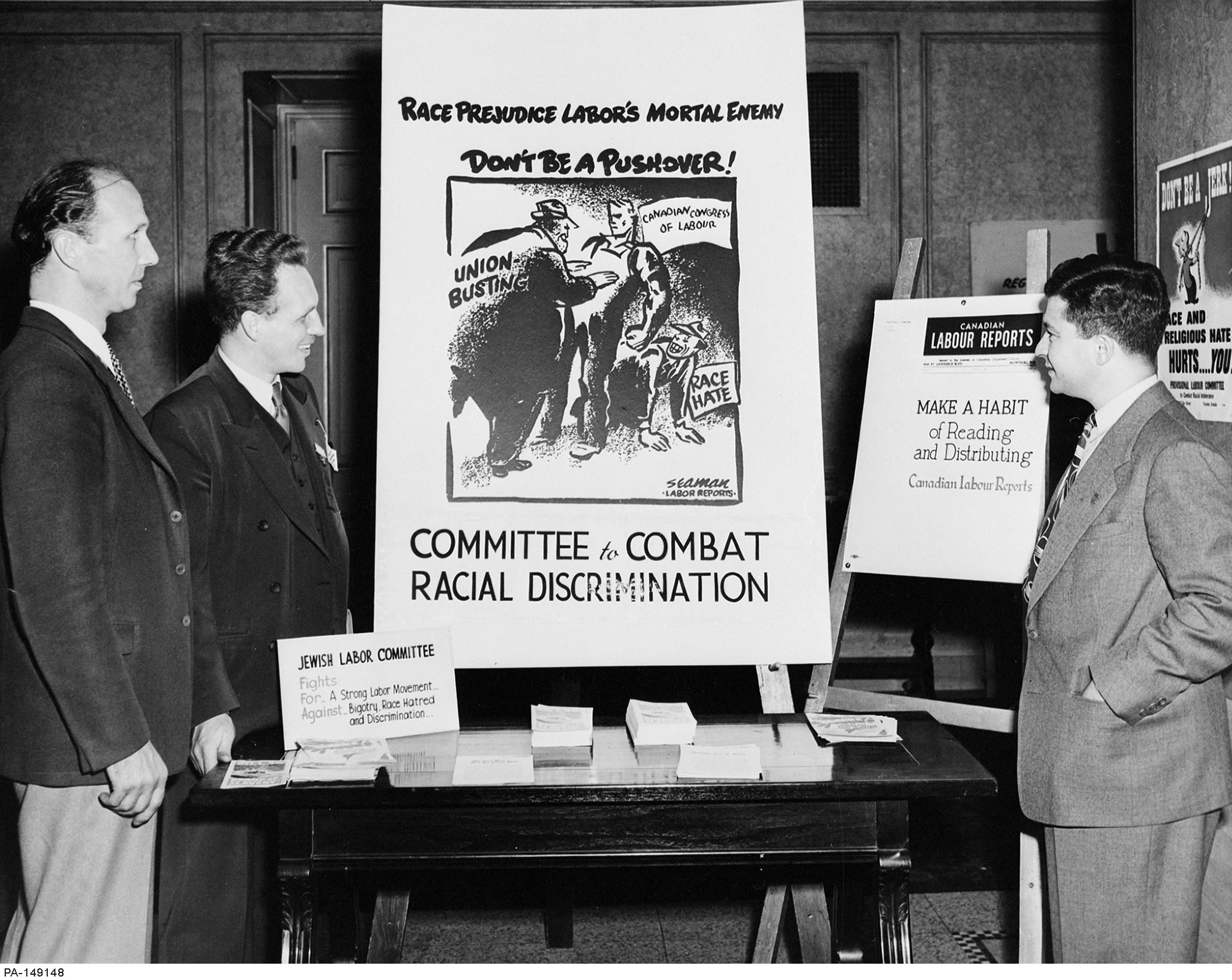Case Study: British Columbia Civil Liberties Association
British Columbia Civil Liberties Association (chapters in Powell River, Penticton, Prince George, Comox-Strathcona Courtenay, Kelowna, North-Central Okanagan)
In 1962, after a string of terrorist attacks by a radical Doukhobor group called the Sons of Freedom, the BC government took the extraordinary step of arresting the members of the group’s fraternal council and charging them with conspiracy to intimidate Parliament and the provincial legislature. This clearly excessive charge against a few religious extremists inspired a small group of Vancouver activists to organize the British Columbia Civil Liberties Association (BCCLA), the first civil liberties group to emerge in Canada since the decline of the Association for Civil Liberties and the League for Democratic Rights in the 1950s. The BCCLA’s first president was Phillip Hewett, a Vancouver Unitarian minister who was later replaced by James Foulks, founding head of the Pharmacology Department at the University of British Columbia.
During its first two decades, the BCCLA became one of the most dynamic rights associations in the country. Between 1968 and 1973, it fought a string of battles against censorship in Vancouver, including attempts by the city licensing inspector to shut down various local theatre productions and to muzzle the Georgia Straight (a popular alternative paper founded in 1967) for obscenity. It successfully lobbied Vancouver City Council to limit the licensing inspector’s powers, and it participated in several Georgia Straight obscenity cases by providing both legal counsel and experts who testified on the paper’s literary merits. In 1971, when mounted police officers attacked a crowd of youths in Gastown who were protesting drug laws, the BCCLA took centre stage in defending the rights of the protesters. Years later, in 1979, it convinced a provincial Supreme Court judge to strike down the BC Heroin Treatment Act, which was designed to forcibly detain drug addicts and compel them to undergo treatment. The court decision provided an important moral victory for civil libertarians who were opposed to the state’s compulsory addiction treatment. Although the Supreme Court of Canada later overturned the decision, the case reflected the rising prominence of the BCCLA and its ability to mobilize sufficient resources for a court case of national importance.
Further Reading
Clément, Dominique. Canada’s Rights Revolution: Social Movements and Social Change, 1937-82. Vancouver: UBC Press, 2008.
Clément, Dominique. “An Exercise in Futility? Regionalism, State Funding and Ideology as Obstacles to the Formation of a National Social Movement Organization in Canada.” BC Studies 146 (2005): 63-91.
Archives
The British Columbia Civil Liberties Association papers are available from the organization itself: www.bccla.org
 Site Resources
Site Resources-
- Any use of material or referencing content from HistoryOfRights.ca should be acknowledged by the User and cited as follows:
–
- Clément, Dominique. “page title or document title.” Canada’s Human Rights History. www.HistoryOfRights.ca (date accessed).


 Encyclopaedia
Encyclopaedia 
 © 2024 COPYRIGHT CLÉMENT CONSULTING. ALL RIGHTS RESERVED.
DEPARTMENT OF SOCIOLOGY, UNIVERSITY OF ALBERTA
© 2024 COPYRIGHT CLÉMENT CONSULTING. ALL RIGHTS RESERVED.
DEPARTMENT OF SOCIOLOGY, UNIVERSITY OF ALBERTA